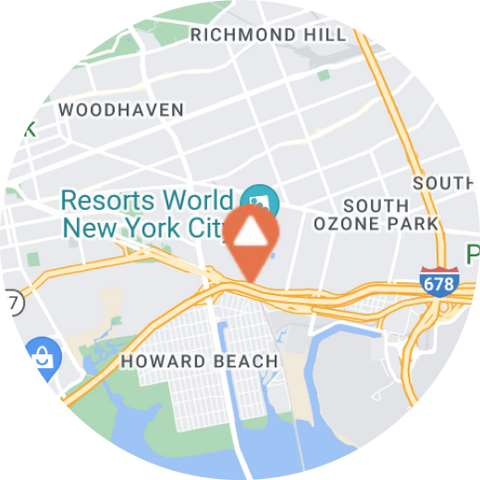You might be thinking, "I took the morning–after pill and then had unprotected sex. What do I do now?" Listen, we've all had that "oops" moment when things were getting hot and heavy in the bedroom, and the unexpected happened. Whether it was the condom that broke, you missed a birth control pill, or you just had unprotected sex, it can be a little nerve-wracking to think about what to do next.
You're likely familiar with the emergency contraceptive pill or the morning-after pill and know that it's an option when things go awry. However, there's tons of misinformation floating around about how these pills work and what they can and cannot do. To ensure you're well-informed, we will give you nothing but straight facts on this medication.
The Morning After Pill: A Temporary Solution
It is important to note that the morning-after pill is not a long-term solution for birth control. It is just a nice backup plan if your usual birth control method fails on you or you don't use any protection. It's only there to help you reduce your risk of pregnancy, but it's not something you rely on regularly.
Purpose of the Morning After Pill
Just so you know, the morning-after pill's main role is to prevent pregnancy after doing the deed without protection. This little pill works by delaying ovulation—the process of your body releasing an egg. So, if there's no egg for the sperm to meet, then there's no fertilization, which means no pregnancy. Pretty simple, right?
Please understand that the emergency contraceptive pill is not an abortion pill. If you're already pregnant, it won't end your pregnancy. Remember, its role is strictly to prevent pregnancy from happening in the first place.
Effectiveness
Good news—the morning-after pill can be highly effective. However, in order for it to work in your favor, you need to take it ASAP! In a perfect world, you want to take this pill within 72 hours of unprotected sex, although other forms can be taken up to 120 hours or five days after unprotected sex.
Here's a quick look at the two different types of morning-after pills available and their effectiveness:
- Morning After Pill® by Cadence OTC, Plan B One-Step, Take Action: These levonorgestrel-based pills are the most effective if taken within 72 hours or three days after unprotected sex. These levonorgestrel -based pills can be bought without a prescription.
- Ella: This ulipristal acetate-based pill works equally well for up to five days after unprotected sex. A prescription is required to get Ella.
While both types of morning-after pills are very effective in preventing pregnancy, they don't 100% guarantee that you won't end up pregnant. Popping a pill as soon as you can may improve your odds, but it doesn't completely eliminate the chances of pregnancy.
Limitations
The morning-after pill is a great add-on to your sexual health toolkit, but, like anything in life, it does have some limitations you should be aware of. As we've mentioned before, this emergency contraceptive won't prevent pregnancy if you engage in unprotected sex after taking it. Just think of this pill as hitting "pause" on your ovulation. Once the pill has left your system, your menstrual cycle continues as usual, which means the risk of pregnancy returns if you engage in unprotected sex again.
Also, as a friendly reminder, the morning-after pill is not designed for regular use. It's not nearly as effective as ongoing birth control methods like birth control pills, intrauterine devices (IUDs), or condoms. Plus, taking the morning-after pill can really mess with your menstrual cycle, which may lead to some unpleasant symptoms like nausea, belly cramps, breast tenderness, and irregular bleeding.
Can You Get Pregnant If You Have Unprotected Sex After Taking the Morning-After Pill?
"I took the morning–after pill and then had unprotected sex. Could I get pregnant?" This is a pretty common question people ask regarding the morning-after pill, and the answer is yes—you can get pregnant if you decide to have unprotected sex after taking the emergency contraceptive. This pill is only helpful in preventing pregnancy after you've done the deed.
So, if you do have sex after popping a morning-after pill, please use another form of contraception to be on the safe side.
Increased Risk of Pregnancy
Using the morning-after pill won't offer ongoing pregnancy prevention. After you've taken it, your ovulation may be delayed, but it won't permanently stop. So, if you end up having unprotected sex again after taking this pill, you're at a very high risk of becoming pregnant once ovulation resumes. Not to sound like a broken record, but this is why it is so important to use regular birth control methods—especially after you've taken a morning-after pill.
Regular Birth Control
If you have a pretty active sex life and aren't looking to get pregnant anytime soon, we highly suggest getting some form of regular birth control. You can choose from the pill, an IUD, the patch, or another method to prevent pregnancy long-term and not just in emergencies.
Don't get us wrong—the morning-after pill can be a lifesaver when things don't go as planned. However, it is not a replacement for regular birth control. If you're frequently using emergency contraception, please consult with your healthcare provider to explore birth control options that are right for you.
Understanding the Risks of Unprotected Sex & The Morning-After Pill
Having unprotected sex carries other risks beyond just getting pregnant. If you're only worried about pregnancy prevention—you're missing the bigger picture. To give you a quick refresher, having sex without using a barrier method—such as a condom—can put you at a higher risk of sexually transmitted infections (STIs). And, unfortunately, the morning-after pill won't protect you from this.
Let's dive a bit deeper into what the risks of unprotected sex are:
Pregnancy
So, the most obvious risk of having unprotected sex is pregnancy. While the morning-after pill can be super helpful in reducing your risk, there's no 100% guarantee that pregnancy won't happen. You're much better off using regular birth control or condoms as a reliable way to prevent pregnancy.
STIs
As we've briefly mentioned, another possible risk that comes from having sex without a condom is an STI. We hate to break it to you, but taking an emergency contraceptive pill won't protect you from common infections like gonorrhea, herpes, chlamydia, syphilis, or HIV. But, on the flip side, using a condom can help prevent both pregnancy and STIs.
If you've had unprotected sex, please get tested for STIs ASAP. In case you're unaware, some STIs are asymptomatic, meaning that you may not show any symptoms. Early detection is necessary for protecting your sexual health, preventing the spread of STIs, and lowering your risk of possible complications if the STI is left untreated.
Preventing Unintended Pregnancy and STIs
You might be wondering, "If the morning-after pill isn't 100% reliable for pregnancy and STI prevention, what should I do?" The answer is to practice safe sex! Yes, it's that simple. This means using a condom every time you have sex—even if it's in conjunction with another form of birth control. In case you didn't know, condoms are the only form of contraception that also offers STI prevention. So, the next time you're at the pharmacy or convenience store, grab a box of condoms so you can have them on hand when things get hot and heavy.
Regular Birth Control
If you're seeking ongoing regular birth control, you're in luck, as there are many options available. There's the pill, the patch, the shot, the IUD, and others. Getting regular birth control is a much better (and more reliable) choice than emergency contraception for pregnancy prevention. Hit up your healthcare provider to discuss your options and find one that works best for you. And just so you know, each one of us is unique so it may take some trial and error to find the right contraception that works for you. Don't hesitate to reach out to your healthcare provider if you feel like switching to something else.
Safe Sex Practices
Don't worry—we're not about to discuss the "birds and the bees." We're pretty confident that you're well-versed in that. However, we want to emphasize the importance of practicing safe sex to protect your and your partner's health.
So, aside from using handy-dandy condoms, here are some other ways to practice safe sex:
- Get tested regularly for STIs: Whether you have one or multiple partners, be sure to get tested regularly for STIs.
- Have open communication with your partner(s): Talk to any new partners about contraception and STI prevention before doing the deed.
- Use barrier methods: Use internal (female) or external condoms for penetrative sex and condoms or dental dams during oral sex to lower your risk of STIs.
- If you're in a monogamous (one-partner) relationship, consider getting tested together and discussing the best option for long-term contraception options. You can be open to their input, but ultimately, this is your decision because it's your body, your choice, right?
When to Consult a Doctor
Still unsure as to whether or not the morning-after pill is right for you? Or have you taken the pill but are experiencing some nasty side effects? In either scenario, we highly suggest reaching out to your healthcare provider. They can help guide you on your options for pregnancy prevention — whether it's emergency contraception or regular birth control.
Other situations where you might want to seek medical services include:
- Experiencing severe side effects after taking the morning-after pill, such as severe belly cramps or heavy bleeding.
- Your period is more than a week late after taking the morning-after pill (this could be a sign of pregnancy).
- Possible exposure to an STI after unprotected sex.
- Getting ongoing and more reliable regular birth control medications.



